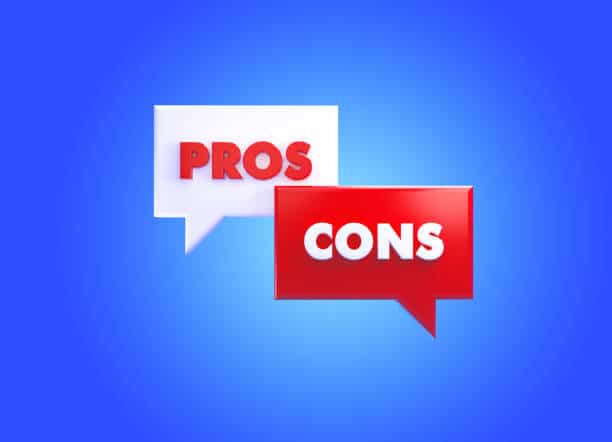Table of Contents
ToggleAffiliate Referrals Introduction
Welcome to the world of affiliate marketing, a realm where savvy marketing strategies meet digital networking. For those new to the concept, affiliate marketing is a performance-based business model where a company pays individuals, known as affiliates, to promote and sell their products or services. These affiliates earn a commission for every sale or lead generated through their unique referral links. It’s a digital hustle that blends salesmanship with the art of online promotion.
Now, let’s talk PPC (Pay-Per-Click). This is a type of digital advertising where you, as an advertiser, pay a fee each time one of your ads is clicked. It’s essentially a way of buying visits to your site, rather than attempting to “earn” those visits organically. When done right, PPC can be a potent tool in your affiliate marketing arsenal, driving targeted traffic to your offers.
But here’s a little confession: My initial foray into the world of affiliate referrals wasn’t all roses and high commissions. I struggled. Hard. Despite having all the theoretical knowledge, the practical application was a beast of a different nature. My ad campaigns were more miss than hit, leading to a disheartening trickle of referrals. It felt like trying to fill a bathtub with a teaspoon.
Enter Kyles PPC class. I stumbled upon this course during one of my late-night internet quests for affiliate marketing wisdom. Skeptical yet desperate, I signed up, not realizing I was on the brink of a game-changing experience. Kyle’s approach to PPC wasn’t just about throwing ads into the digital void; it was strategic, data-driven, and tailored specifically for boosting affiliate referrals.
Here’s the kicker: In just 30 days after implementing Kyle’s teachings, I saw my affiliate referrals skyrocket. Not just any referrals, but 32 wealthy ones that significantly padded my commission earnings. It was a clear before-and-after scenario. This course didn’t just add a new tool to my kit; it revamped my entire approach to affiliate marketing.
In this blog post, I’m going to share this journey. From the initial struggles to the eye-opening class, and the subsequent triumph in achieving 32 wealthy affiliate referrals in just 30 days. Whether you’re a newbie to affiliate marketing or a seasoned marketer facing a plateau, this story is packed with insights and actionable tips that could very well be your next big leap in the affiliate marketing world. Let’s dive in.
Related Article – ClickBank Scam or legit?
“Is ClickBank Affiliate a scam or a legitimate opportunity? This is a common question that many people ask when considering whether to join the platform. ClickBank is an affiliate marketing … Read More>>

Understanding the Basics of Affiliate Marketing
What Are Affiliate Referrals?
Affiliate referrals are at the heart of the affiliate marketing world. In simple terms, an affiliate referral happens when a potential customer clicks on a unique link provided by an affiliate and then completes a desired action on the merchant’s website. This action could be making a purchase, signing up for a newsletter, or any other activity deemed valuable by the merchant. The unique link is crucial here; it’s how the merchant tracks which affiliate sent the customer their way.
Think of each affiliate referral as a digital handshake between you, the affiliate, and the customer you’re guiding to a product or service. It’s a vote of confidence in your recommendation, and it’s what earns you a commission.
But why are these referrals so important in the affiliate marketing landscape? Here are a few reasons:
- Revenue Generation: The most obvious importance is revenue. For affiliates, each successful referral translates into a commission, making it a direct income source. For merchants, it means a sale or a valuable action taken by a potential customer, often leading to increased revenue.
- Cost-Effectiveness: Affiliate marketing, by its very nature, is performance-based. This means merchants pay for results, not just exposure. It’s an efficient way to market, as they’re not spending money on ads that may or may not perform. For affiliates, it offers the opportunity to earn based on their marketing skills and effort, making it a fair and potentially lucrative arrangement.
- Extended Reach: Affiliates often have their own networks and audiences. By partnering with various affiliates, a merchant can significantly extend their reach and visibility across different markets and demographics they might not have easily accessed otherwise.
- Trust and Credibility: People tend to trust recommendations from individuals they know or follow, more than direct advertising from brands. Affiliates act as trusted intermediaries, lending credibility to the products or services they promote. This trust factor can lead to higher conversion rates compared to standard advertising methods.
- SEO Benefits: Affiliate referrals often involve linking, which can contribute positively to a website’s search engine optimization (SEO). Quality backlinks from affiliates can improve a merchant’s site ranking, leading to more organic traffic.
In essence, affiliate referrals are a cornerstone of modern digital marketing strategies. They offer a win-win scenario for both merchants and affiliates, driven by performance, trust, and mutual benefit. Understanding this concept is crucial for anyone looking to dive into the dynamic and rewarding world of affiliate marketing.
related article – What is affiliate marketing for beginners?
A lot of people ask me What is Affiliate Marketing and even more so those just beginning their journey. Many short-minute beginner guides to affiliate marketing tutorials can make you … Read More>>

The Role of PPC in Affiliate Marketing
Pay-Per-Click (PPC) advertising is a pivotal tool in the affiliate marketing toolkit. It’s a model where advertisers pay a fee each time one of their ads is clicked, essentially buying visits to their site or affiliate links. In the context of affiliate marketing, PPC is used by affiliates to promote products or services and drive traffic to their affiliate links.
Breaking Down PPC in Affiliate Marketing
- Directing Targeted Traffic: PPC allows you to target specific demographics, locations, and even times of day. This targeting ensures that your ads reach the audience most likely to be interested in the products you’re promoting, increasing the chances of conversions.
- Measurable ROI: PPC campaigns offer clear metrics like click-through rates (CTR), conversion rates, and cost-per-acquisition (CPA). These metrics enable affiliates to measure the return on investment (ROI) of their campaigns accurately and make data-driven decisions.
- Flexibility and Control: Affiliates have significant control over their PPC campaigns. You can start, pause, or adjust your campaigns based on performance, budget, or market trends, making it a highly adaptable marketing strategy.
- Speed and Scale: Unlike organic marketing strategies, PPC can drive traffic almost immediately after the launch of a campaign. This immediacy is crucial for affiliates who want to capitalize on time-sensitive offers or trends.
Examples of Successful PPC Campaigns in Affiliate Marketing
- Promoting Niche Products: An affiliate promoting specialized fitness equipment used PPC to target fitness enthusiasts. By using specific keywords and demographic targeting, they were able to drive highly interested traffic to their affiliate links, resulting in a high conversion rate.
- Seasonal Campaigns: An affiliate capitalized on the holiday season by creating PPC campaigns for gift-related products. By adjusting the ad copy and targeting to reflect the festive mood, they saw a significant increase in clicks and conversions.
- Leveraging Local Events: An affiliate promoting event tickets used PPC to target people searching for events in specific cities. By tailoring their ads to local audiences and events, they managed to secure a high number of referrals and sales.
- Remarketing Campaigns: An affiliate used remarketing PPC ads to target users who visited their blog but didn’t make a purchase. These ads reminded potential customers about the products they viewed, leading to increased conversion rates.
- Utilizing Social Media Platforms: An affiliate ran targeted ads on social media platforms, using PPC to reach audiences interested in beauty products. The visually appealing ads, coupled with the platform’s vast user base, resulted in a successful campaign with a high number of referrals.
In summary, PPC plays a critical role in the world of affiliate marketing. It offers targeted traffic, measurable results, flexibility, and speed. By understanding and harnessing the power of PPC, affiliates can significantly boost their referral numbers and, consequently, their earnings. Whether it’s targeting niche markets, capitalizing on seasonal trends, or remarketing to interested customers, PPC campaigns can be tailored to suit various marketing strategies and goals.
My Journey Before Kyle’s Class
The Struggles of a Beginner in Affiliate Marketing
Embarking on a journey in affiliate marketing can be both exciting and daunting, especially for beginners. My personal experience in the early stages of affiliate marketing was a rollercoaster of highs and lows, filled with learning curves and eye-opening moments. Here, I’ll share some of the challenges I faced and common mistakes and misconceptions I encountered along the way.
Personal Experiences and Challenges
- Overwhelm with Information: When I first started, the sheer amount of information available was overwhelming. There were countless strategies, tools, and platforms to choose from. It took time and patience to sift through this information and determine what was relevant to my goals.
- Choosing the Right Niche: Initially, I struggled with selecting a niche. I jumped into popular niches without considering my interests or expertise, which led to a lack of genuine engagement and knowledge in the products I was promoting.
- Understanding SEO and Content Marketing: Grasping the basics of SEO and content marketing was a steep learning curve. Initially, my content lacked optimization, which meant it hardly ranked on search engines, leading to low traffic and few referrals.
- Budget Management in PPC Campaigns: Mismanaging my budget in PPC campaigns was a significant early mistake. I either spent too little to make an impact or too much without proper targeting, resulting in poor ROI.
- Building an Audience: I underestimated the effort required to build and maintain an engaged audience. Building trust and a loyal following took much longer than I anticipated.
Common Mistakes and Misconceptions
- “Quick and Easy Money” Myth: One of the biggest misconceptions is that affiliate marketing is a quick path to wealth. In reality, it requires hard work, patience, and consistency. Success doesn’t happen overnight.
- Ignoring the Importance of Quality Content: Many beginners focus solely on selling, neglecting the importance of providing value through quality content. Without engaging and valuable content, it’s challenging to build a loyal audience.
- Underestimating the Competition: Affiliate marketing is highly competitive. Initially, I underestimated this, which led to unrealistic expectations and strategies that didn’t stand out in the crowded market.
- Neglecting Analytics: In the beginning, I didn’t pay much attention to analytics. Monitoring and analyzing performance data is crucial for understanding what works and what doesn’t.
- Overdependence on a Single Traffic Source: Initially, I relied too much on one traffic source. Diversifying traffic sources is vital to reduce risk and increase the chances of success.
- Ignoring the Audience’s Needs: Early on, I was more focused on what I wanted to sell rather than what my audience needed or was interested in. Understanding and catering to the audience’s needs is key to affiliate marketing success.
In summary, the initial phase of affiliate marketing can be fraught with challenges and mistakes. However, these obstacles also serve as valuable learning opportunities. By sharing these personal experiences and common pitfalls, I hope to provide insights that can help other beginners navigate the complex yet rewarding world of affiliate marketing more effectively.
related article – The how to of affiliate marketing for beginners
In this How to of Affiliate Marketing for beginners we will show you exactly how to succeed in this beginner’s guide. Read More Here

The Turning Point: Discovering Kyle’s PPC Class
My journey in affiliate marketing was marked by a pivotal moment that reshaped my entire approach: the discovery of Kyle’s PPC class. This discovery wasn’t just a step forward; it was the leap I needed to transform my struggling campaigns into a flourishing affiliate marketing venture.
Discovering the Class
It was during one of those evenings, the kind where you’re glued to your laptop, scouring the internet for that elusive piece of wisdom that could turn things around. I was deep into researching advanced PPC techniques when I stumbled upon a forum discussing Kyle’s PPC class. Post after post, seasoned marketers were praising it for its practical insights and actionable strategies. It piqued my curiosity.
Kyle’s class was advertised as a comprehensive deep dive into PPC for affiliate marketing, covering everything from keyword research to campaign optimization. But what really caught my attention was its focus on the unique challenges faced by affiliates, particularly in generating profitable referrals through paid ads.
Initial Skepticism
My initial reaction, however, was skepticism. I had already tried various courses and tutorials, many of which promised the moon but delivered very little in terms of actionable content. My past experiences made me cautious. Was this just another over-hyped program?
I delved deeper, seeking out reviews and testimonials. I discovered a community of successful affiliates who attributed their success to Kyle’s teachings. They talked about real results, showing before-and-after statistics of their PPC campaigns. Yet, a part of me still doubted. Could this class really provide the breakthrough I needed?
The Decision to Enroll
The turning point came when I found a case study shared by a class alum. It detailed their journey from struggling with PPC to mastering it, complete with data and specific examples of how Kyle’s class helped them refine their strategy. It was relatable and, more importantly, credible.
After much deliberation, I decided to take the leap. I enrolled in Kyle’s PPC class, driven by the hope that this could be the key to unlocking the potential of my affiliate marketing efforts. It felt like a gamble, but one based on calculated risks and informed by the success stories of others.
Enrolling in Kyle’s class marked a significant shift in my affiliate marketing journey. It was a decision born from frustration and hope, but backed by the conviction that with the right guidance, I could turn my PPC struggles into a source of strength in my affiliate marketing endeavors. This class wasn’t just another course; it represented a new chapter, one filled with the promise of growth, learning, and, most importantly, tangible results in the world of affiliate referrals.
Kyle’s PPC Class: A Deep Dive
Curriculum Overview
Kyle’s PPC Class offered a comprehensive and meticulously structured curriculum, designed to address the various facets of using Pay-Per-Click advertising in affiliate marketing. The course was divided into several key modules, each focusing on a specific area of PPC strategy. Here’s an overview of the core modules and lessons, along with the unique teaching methods and materials that set this class apart.
Key Modules and Lessons
Module 1: Introduction to PPC in Affiliate Marketing
- Understanding PPC: Basics of PPC, how it works, and its relevance in affiliate marketing.
- Affiliate Marketing and PPC: Integrating PPC campaigns into your affiliate marketing strategy.
Module 2: Setting Up Your PPC Campaign
- Choosing the Right Platform: Exploring platforms like Google Ads, Bing Ads, and social media advertising.
- Account Setup and Structure: Setting up PPC accounts, understanding campaign structure.
Module 3: Keyword Research and Selection
- Finding the Right Keywords: Techniques for effective keyword research specific to affiliate marketing.
- Keyword Tools and Usage: Utilizing tools like Google Keyword Planner for finding high-potential keywords.
Module 4: Creating Compelling Ad Copy
- Writing Effective Ads: Crafting ad copy that converts, focusing on headlines and descriptions.
- A/B Testing for Ads: Learning how to test different ad variants for optimal performance.
Module 5: Landing Pages and Conversion Optimization
- Designing Effective Landing Pages: Principles of landing page design that lead to conversions.
- Conversion Rate Optimization (CRO): Techniques to improve the conversion rate of your landing pages.
Module 6: Budget Management and Bidding Strategies
- Budget Allocation: Strategies for effective budget distribution and management.
- Bidding Techniques: Understanding different bidding strategies and choosing the right one for your campaign.
Module 7: Analyzing and Optimizing Your Campaigns
- Understanding Analytics: Interpreting data from your PPC campaigns.
- Continuous Optimization: Methods for ongoing optimization of campaigns based on performance data.
Module 8: Scaling and Advanced Strategies
- Scaling Your Campaigns: Strategies for safely scaling up successful campaigns.
- Exploring Advanced PPC Tactics: Delving into more complex tactics and strategies for seasoned marketers.
Unique Teaching Methods and Materials
- Interactive Workshops: The course included hands-on workshops where students could apply lessons in real-time to their campaigns.
- Case Studies: Detailed case studies of successful and unsuccessful PPC campaigns provided practical insights.
- One-on-One Coaching Sessions: Opportunities for personalized coaching sessions with Kyle or experienced TAs.
- Community Access: Enrolment granted access to an exclusive community of fellow marketers for networking and support.
- Regular Q&A Sessions: Regular live Q&A sessions to address specific queries and challenges faced by students.
- Resource Library: A comprehensive library of resources, including templates, checklists, and guides for PPC campaign management.
This curriculum was designed not just to impart knowledge but to ensure practical application and real-world success. The focus on interactive and hands-on learning, combined with the support of a community and personalized attention, made Kyle’s PPC class a transformative experience for many affiliates, including myself. The course’s structured yet flexible approach catered to both beginners and experienced marketers, making it a valuable asset in the arsenal of anyone serious about mastering PPC for affiliate marketing.
related article – how to make money online from home free and fast: The 9 best ways in 2023/24
Looking for tips on how to make money online from home, free and fast? You have come to the right place. 2021 is the year of quitting jobs as employers … Read More>>

Key Takeaways from the Class
The class offered a wealth of knowledge, equipping me with vital skills and strategies to excel in PPC for affiliate marketing. Here are some critical learnings distilled into key takeaways:
PPC Strategies Specific to Affiliate Marketing
- Tailoring PPC for Affiliate Goals: Learned to align PPC strategies with specific affiliate marketing objectives, such as lead generation or direct sales.
- Focused Keyword Selection: Gained insights into choosing keywords that are not only popular but highly relevant to the affiliate products being promoted.
- Effective Ad Placement: Understood the importance of placing ads on platforms where the target audience is most active, maximizing visibility and engagement.
Understanding Target Demographics
- Demographic Analysis: Acquired skills in analyzing demographic data to understand the target audience deeply, including their interests, behaviors, and online habits.
- Segmentation Techniques: Learned how to segment audiences for more targeted and effective ad campaigns.
- Customized Messaging: Developed the ability to tailor messages and offers to different audience segments for higher conversion rates.
Crafting Compelling Ad Copy
- Writing Engaging Headlines: Mastered the art of crafting headlines that grab attention and prompt clicks.
- Clear and Concise Messaging: Learned to create ad copy that is clear, concise, and focused on the unique selling points of the affiliate products.
- Call-to-Action Optimization: Gained insights into crafting compelling calls-to-action (CTAs) that encourage immediate responses from the audience.
Budget Management and ROI Optimization
- Smart Budget Allocation: Learned strategies for allocating budgets efficiently across different campaigns and ad groups.
- Cost-Effective Bidding Strategies: Gained proficiency in selecting and implementing bidding strategies that maximize ROI while keeping costs in check.
- Continuous Performance Analysis: Acquired skills in continuously analyzing and adjusting campaigns based on performance data to ensure optimal use of the budget and maximum ROI.
These takeaways from Kyle’s class were more than just theoretical knowledge; they were practical, actionable strategies that I could immediately implement in my PPC campaigns. The class provided a comprehensive understanding of how to use PPC effectively in affiliate marketing, focusing on results-driven techniques tailored specifically for the unique challenges and opportunities in this field. The skills and insights gained from this class were instrumental in transforming my approach to PPC and significantly boosting my affiliate marketing success.
Related Article – pros & Cons of Affiliate Marketing: is it right for you?
Hey there! Are you considering making money online but don’t know where to start? Affiliate marketing might be worth considering. It’s a popular way to earn passive income by promoting … Check If Its Right For You Here

Implementing Kyle’s Strategies
Setting Up My First PPC Campaign
Embarking on my first PPC campaign after Kyle’s class was both exhilarating and challenging. I approached it with a newfound knowledge and a strategic mindset. Here’s a step-by-step walkthrough of how I set up that campaign, including anonymized data and screenshots to provide a real-world perspective.
Step 1: Defining the Campaign Goals
- Objective Identification: I started by clearly defining the campaign’s objectives, which in my case were generating affiliate referrals and increasing conversions for a specific product.
- Target Audience: Based on the product, I identified the target audience, focusing on their interests, online behavior, and demographics.
Step 2: Keyword Research and Selection
- Keyword Tools: Utilizing tools like Jaaxy, I conducted thorough research to find relevant and high-performing keywords.
- Keyword Shortlisting: I then shortlisted keywords with a good balance of search volume and competition, relevant to the affiliate product.
Step 3: Choosing the Right Platform
- Platform Selection: Based on where my target audience was most active, I chose Google Ads for its wide reach and advanced targeting options.
- Account Setup: I set up my Google Ads account, ensuring all necessary details were accurately filled in.
Step 4: Creating the Ad Copy
- Compelling Headlines: Drafted several headlines, focusing on the unique selling points of the product.
- Concise and Clear Descriptions: Wrote descriptions that were clear, concise, and included a strong call-to-action.
- A/B Testing Plan: Prepared multiple versions of ad copy for A/B testing to identify the most effective one.
Step 5: Setting Up Landing Pages
- Landing Page Design: Designed a landing page specifically for this campaign, ensuring it was aligned with the ad copy and the product’s value proposition.
- Conversion Optimization: Incorporated elements of conversion rate optimization, like clear CTAs and minimalistic design.
Step 6: Campaign Configuration in Google Ads
- Campaign Setup: Set up the campaign in Google Ads, choosing ‘Search Network’ for focused targeting.
- Ad Group Creation: Created specific ad groups based on different keyword themes for better targeting and tracking.
Step 7: Budgeting and Bidding
- Budget Allocation: Set a daily budget based on my overall budget and campaign goals.
- Bidding Strategy: Chose a cost-per-click (CPC) bidding strategy, starting with a conservative bid based on keyword competition.
Step 8: Launching the Campaign
- Final Review: Conducted a thorough review of all settings and content.
- Campaign Launch: With everything in place, I launched the campaign.
Step 9: Monitoring and Tweaking
- Performance Tracking: Regularly monitored the campaign’s performance using Google Ads analytics.
- Adjustments: Made adjustments in real-time based on performance data, tweaking keywords, bids, and ad copy as needed.
Setting up this campaign was a significant learning experience. It allowed me to apply the insights from Kyle’s class in a practical setting, refining my approach as I went along. The real-time adjustments and data analysis were crucial in understanding what resonates with the audience and how to optimize PPC campaigns for maximum effectiveness in affiliate marketing.
Monitoring and Tweaking the Campaign
Analytics play a crucial role in the success of Pay-Per-Click (PPC) campaigns, especially in the dynamic realm of affiliate marketing. They provide valuable insights that guide decision-making, helping to optimize campaigns for better performance and ROI. Here’s a breakdown of why analytics are indispensable in PPC, accompanied by examples of adjustments made for enhanced performance.
related article at theRetiredAffiliates.Com

Not afraid of a little hard work? have a driving passion to be your own boss? would love to earn a job retiring income in the next 6 – 12 months?. then you need to read unleashed to see how i can get you there!
Why Analytics are Key in PPC
Real-Time Feedback
- Analytics offer real-time data on how your campaigns are performing, allowing you to see what’s working and what isn’t almost immediately.
Data-Driven Decisions
- With analytics, decisions are not based on hunches but on concrete data. This reduces the risk of spending on ineffective strategies.
Understanding Audience Behavior
- Analytics tools track how users interact with your ads and website, providing insights into user behavior and preferences.
Tracking ROI
- One of the most important aspects of analytics is the ability to track return on investment (ROI). You can see exactly how much you are earning in comparison to your spending.
Identifying Trends
- Analytics help in spotting trends in your data, which can inform future campaign strategies and budget allocation.
related article – what is a keyword research tool – jaaxy review
What is a Keyword Search Tool? Are you looking to find high quality keywords for your marketing campaigns? Simply perform a search below to START your research. Finding the right … Read More>>

Examples of Adjustments for Better Performance
Adjusting Keywords
- Situation: Analytics showed that certain keywords were driving traffic but not conversions.
- Adjustment: I refined my keyword strategy, pausing underperforming keywords and bidding more on those that were converting.
Optimizing Ad Copy
- Situation: Through A/B testing data, I noticed one version of the ad copy had a higher click-through rate (CTR) than others.
- Adjustment: I adjusted the ad copy across campaigns, using the more effective version to increase overall CTR.
Budget Re-allocation
- Situation: Some ad groups were consistently outperforming others in terms of ROI.
- Adjustment: I reallocated the budget, directing more funds to the higher-performing ad groups to maximize returns.
Landing Page Optimization
- Situation: Analytics revealed a high bounce rate on the landing page.
- Adjustment: I optimized the landing page by improving load times, making call-to-action (CTA) buttons more prominent, and ensuring the content was aligned with the ad messaging.
Adjusting Bidding Strategy
- Situation: The cost-per-click (CPC) was higher than the industry average, reducing the overall campaign profitability.
- Adjustment: I shifted to a more aggressive bidding strategy during peak hours when conversion rates were higher, and a conservative approach during off-peak times.
Geographic Targeting
- Situation: Certain geographic locations were showing higher engagement and conversion rates.
- Adjustment: I refined the geographic targeting of the campaigns to focus more on these high-performing locations.
In conclusion, analytics in PPC is not just about collecting data; it’s about interpreting that data to make informed, strategic decisions that boost campaign performance. Regularly reviewing and acting on analytics insights is key to running successful PPC campaigns in affiliate marketing. It allows for a dynamic approach to campaign management, continuously fine-tuning strategies for optimal results.
The Results: 32 Wealthy Affiliate Referrals in 30 Days
What These Referrals Mean for My Business
The influx of 32 wealthy affiliate referrals in just 30 days marked a significant milestone in my affiliate marketing journey. These referrals were not just a numeric achievement; they had a profound impact on various aspects of my business. Let’s delve into how these referrals contributed to my overall business goals and what they signify for future growth and opportunities.
$$ Get Started Here $$Impact on Overall Business Goals
Increased Revenue
- Direct Impact: Each referral translated into commission, directly boosting my income.
- Cumulative Effect: The cumulative effect of these referrals over time is expected to significantly increase my earnings.
Enhanced Credibility and Trust
- Reputation Boost: Successfully driving high-value referrals enhanced my reputation as a credible affiliate marketer.
- Trust with Merchants: Consistently delivering quality referrals has the potential to strengthen my relationships with merchants, possibly leading to better commission rates or exclusive deals.
Expanded Audience Base
- Broader Reach: The success of these campaigns attracted more traffic to my platforms (website, social media), helping expand my audience base.
- Engagement Increase: With an increase in audience size, I observed higher engagement rates, providing more opportunities to promote affiliate products.
Projecting Future Growth and Opportunities
Scaling Up Campaigns
- Leveraging Data: Using insights from the successful campaigns, I plan to scale up my efforts, investing more in proven strategies to drive even higher numbers of referrals.
- Diversifying Strategies: I’m also exploring diversification into other PPC platforms and affiliate products to tap into different markets.
Building Brand Partnerships
- Strategic Alliances: The success of these referrals positions me favorably for forming strategic partnerships with brands, potentially leading to sponsored content opportunities.
- Exclusive Deals: I can leverage my success to negotiate exclusive deals or early access to products, providing a competitive edge.
Long-Term Sustainability
- Consistent Revenue Stream: By replicating and refining the strategies that worked, I aim to establish a consistent and sustainable revenue stream.
- Adaptability: The experience has equipped me to adapt quickly to market changes, ensuring long-term viability in the ever-evolving affiliate marketing landscape.
Personal Brand Growth
- Influencer Status: This success story enhances my profile as an influencer in the affiliate marketing community.
- Educational Opportunities: There’s potential to venture into educational aspects, like conducting webinars or courses, sharing my insights and strategies with budding affiliate marketers.
Exploring New Niches and Markets
- Market Expansion: The confidence and skills gained from this experience encourage exploration into new niches, tapping into various market segments.
- Innovative Campaigns: I plan to experiment with innovative marketing campaigns, integrating emerging technologies and trends to stay ahead in the game.
In summary, the 32 wealthy affiliate referrals achieved in a short span are much more than a one-time victory; they represent a turning point that paves the way for sustained growth and new opportunities. This achievement is a testament to the potential of well-strategized PPC campaigns in affiliate marketing and sets the stage for continued success and expansion.

Lessons Learned and Best Practices
Key Takeaways for Fellow Marketers
The journey to achieving 32 wealthy affiliate referrals in just 30 days through PPC campaigns has been enlightening. It offers valuable lessons for fellow marketers looking to enhance their affiliate marketing strategies. Here are the key takeaways and best practices that I’ve learned, which can be instrumental for anyone in this field:
Essential Lessons for Readers
- Strategic Planning is Key: Success in affiliate marketing hinges on well-thought-out strategies, aligning your goals with your audience’s needs and the strengths of the products you’re promoting.
- Continuous Learning and Adaptation: The digital marketing landscape is ever-evolving. Staying informed about the latest trends and continuously adapting your strategies is crucial.
- Data-Driven Decision Making: Leverage analytics to make informed decisions. Understand what the data is telling you about your campaigns, audience, and overall performance.
- Quality Over Quantity: Focus on driving high-quality traffic rather than just increasing numbers. Targeted campaigns often yield better conversion rates and more valuable referrals.
- Patience and Persistence: Results in affiliate marketing may not be immediate. Patience and consistent effort are key to long-term success.
Best Practices in Affiliate Marketing and PPC
Affiliate Marketing Best Practices
- Choose the Right Affiliates: Select affiliate products that resonate with your audience and align with your niche.
- Provide Value to Your Audience: Create content that is not only promotional but also informative and engaging to build trust and credibility.
- Monitor and Optimize Your Efforts: Regularly review your affiliate marketing strategies and make necessary adjustments for improved performance.
PPC Best Practices
- Targeted Keyword Research: Invest time in thorough keyword research to ensure your ads reach the right audience.
- Compelling Ad Copy: Craft ad copy that speaks directly to the needs and interests of your target audience, with clear and persuasive calls-to-action.
- Landing Page Optimization: Ensure your landing pages are optimized for conversions, with a clear message that aligns with your ads.
- Budget Management: Monitor your ad spend closely and adjust bids and budgets to maximize ROI.
- Test and Refine: Regularly test different elements of your campaigns, from ad copy to landing pages, and use the insights gained to refine your approach.
These key takeaways and best practices are distilled from real-world experience and learning. They serve as a guide to navigate the complexities of affiliate marketing and PPC, helping you to craft campaigns that are not only effective but also sustainable in the long run. Whether you’re a beginner or an experienced marketer, these insights can help in honing your strategies and achieving better results in your affiliate marketing endeavors.
Common Pitfalls in Affiliate Marketing and PPC, and How to Avoid Them
In the journey of affiliate marketing and PPC, it’s easy to encounter certain pitfalls that can hinder success. Recognizing these common mistakes and knowing how to avoid them is crucial for anyone in the field. Here are some of the frequent pitfalls along with strategies to steer clear of them:
related article – Uncovering The Truth Behind Wealthy Affiliate Reviews In 2024: Can You Make Money?
Wealthy Affiliate is an online platform that provides tools and resources to help people create successful online businesses. It has been around for over 17 years and has been gaining a lot… Read More>>

Overlooking the Importance of Niche Selection
- Pitfall: Choosing a niche based solely on its popularity or perceived profitability, without considering personal interest or expertise.
- Solution: Select a niche that aligns with your interests and expertise. Passion and knowledge in your niche translate to more authentic and engaging content.
Ignoring the Target Audience
- Pitfall: Focusing solely on selling products without understanding the needs, preferences, and behaviors of the target audience.
- Solution: Conduct thorough audience research. Understand their pain points, interests, and online behavior to tailor your content and campaigns accordingly.
Neglecting Quality Content
- Pitfall: Over-emphasizing promotional content while neglecting the value and quality of the content being produced.
- Solution: Balance promotional content with valuable, informative, and engaging content. High-quality content builds trust and keeps the audience engaged.
Mismanaging PPC Budgets
- Pitfall: Allocating budgets improperly or setting unrealistic bids, leading to poor ROI.
- Solution: Start with a conservative budget, monitor performance closely, and adjust bids based on data-driven insights. Use budgeting tools and analytics to make informed decisions.
Overlooking SEO in Affiliate Content
- Pitfall: Failing to optimize affiliate content for search engines, leading to low visibility and traffic.
- Solution: Incorporate SEO best practices in your content creation. Use relevant keywords, optimize meta tags, and ensure high-quality backlinks.
Not Testing and Optimizing Campaigns
- Pitfall: Launching campaigns without testing different elements or failing to optimize based on performance data.
- Solution: Employ A/B testing for ad copies, landing pages, and other campaign elements. Continuously analyze campaign data and make adjustments for improvement.
Falling for “Get Rich Quick” Schemes
- Pitfall: Being swayed by programs or strategies promising immediate, high earnings with little effort.
- Solution: Approach affiliate marketing with a mindset of patience and hard work. Be wary of schemes that sound too good to be true.
Underestimating Competition
- Pitfall: Not acknowledging or understanding the level of competition in the affiliate marketing space.
- Solution: Conduct competitive analysis to understand what competitors are doing. Stay informed about industry trends and adjust strategies accordingly.
Failing to Stay Compliant
- Pitfall: Ignoring legal requirements such as disclosure of affiliate links or adhering to advertising regulations.
- Solution: Stay informed about the legal aspects of affiliate marketing. Ensure transparency with your audience and adhere to advertising guidelines.
By being aware of these pitfalls and adopting proactive strategies to avoid them, you can enhance the effectiveness of your affiliate marketing and PPC efforts. It’s about striking a balance between strategic planning, quality content, audience understanding, and data-driven optimization, all while staying patient and committed to your goals.
Concluding Thoughts
The Value of Expert Guidance in Affiliate Marketing
In the ever-evolving and competitive world of affiliate marketing, the guidance of experts like Kyle can be invaluable. Such mentorship and expert insights often mark the difference between struggling in the field and achieving significant success. Here’s a reflection on the importance of learning from experts and the continuous pursuit of knowledge and improvement in affiliate marketing.
Learning from Experts
Accelerated Learning Curve
- Expert Insights: Experts bring a wealth of experience and knowledge, offering insights that might take years to learn independently.
- Avoiding Common Mistakes: Learning from someone who has been there and done that helps in avoiding common pitfalls, saving time and resources.
Tailored Strategies
- Context-Specific Advice: Experts can provide strategies and tips that are relevant to your specific situation, market, and goals.
- Real-World Applications: Theoretical knowledge is important, but experts provide real-world applications and practical examples that are invaluable.
Networking Opportunities
- Industry Connections: Experts often have a network of contacts in the industry, which can be beneficial for collaborations, partnerships, and growth.
- Community Engagement: Many experts foster a community of learners, providing a platform for peer learning and support.
Continual Learning and Improvement
Staying Relevant
- Keeping Up with Trends: The digital marketing landscape is constantly changing. Continuous learning ensures you stay updated with the latest trends and technologies.
- Adapting to Market Changes: Regularly updating your skills and knowledge helps in quickly adapting to market shifts and consumer behavior changes.
Personal and Professional Growth
- Skill Enhancement: Continuous learning leads to the enhancement of both technical and soft skills.
- Confidence Building: The more you learn and apply, the more confident you become in your strategies and decision-making.
Innovating and Experimenting
- Creative Strategies: Ongoing learning fosters creativity, encouraging you to try new and innovative strategies.
- Experimentation: With a solid knowledge base, you’re more likely to experiment with different techniques and find what works best for your unique style.
In conclusion, the value of expert guidance in affiliate marketing cannot be overstated. It’s a catalyst for growth, learning, and success in the field. I encourage readers to actively seek knowledge, whether through courses, mentorship, webinars, or self-study. Embrace the journey of learning as an ongoing process. Remember, in a field as dynamic as affiliate marketing, the quest for improvement and the thirst for knowledge are your greatest allies.
Final Tips and Encouragement for Your Affiliate Marketing Journey
As you embark on or continue your journey in affiliate marketing, it’s important to arm yourself with not just tools and strategies but also the right mindset and approach. Here are some final tips and words of encouragement to guide and motivate you in this exciting and rewarding field.

Parting Advice for Success in Affiliate Marketing
Start with a Solid Foundation
- Educate Yourself: Before diving in, make sure you have a good understanding of the basics of affiliate marketing. This foundation is crucial for your future growth.
Set Realistic Goals and Expectations
- Patience is Key: Success in affiliate marketing doesn’t happen overnight. Set realistic goals and be patient as you work towards them.
Focus on Building Relationships
- With Your Audience: Build trust and credibility with your audience. Remember, the most successful affiliate marketers are those who genuinely help their audience.
- With Merchants: Establish good relationships with merchants. This can lead to better deals and insights into what sells well.
Stay Adaptive and Flexible
- Market Dynamics: The digital marketing world is always changing. Be prepared to adapt your strategies to keep up with these changes.
Consistent Learning and Improvement
- Never Stop Learning: The most successful marketers are those who continually learn and adapt. Stay curious and open to new strategies and ideas.
Test and Optimize
- Experimentation: Don’t be afraid to try new tactics and tools. What works for others may not work for you, and vice versa.
- Analyze and Optimize: Regularly review your strategies and performance. Use data to make informed decisions and optimize your campaigns.
Motivating Call to Action
Now, it’s your turn to take the leap. Remember, every expert was once a beginner. The world of affiliate marketing is vast and full of potential. Whether you are just starting out or looking to level up your existing strategies, the key is to keep moving forward.
Take Action Today: Start by setting one small, achievable goal in your affiliate marketing journey. It could be as simple as choosing a niche, setting up a blog, or enrolling in a course. The important thing is to begin.
Join the Community: Consider joining forums, groups, or networks of affiliate marketers. Learning and growing in a community can be incredibly rewarding and motivating.
Embrace the Journey: Celebrate your successes, learn from your failures, and never lose sight of your goals. Your journey in affiliate marketing can be as rewarding as you make it.
Remember, the path to success in affiliate marketing is paved with dedication, adaptability, and continuous learning. Go forth with confidence and enthusiasm. The opportunities are endless, and your journey is just beginning. Let’s make it a remarkable one!
Mark – The Retired Affiliates

Hey, Fellow Entrepreneurs it really is so awesome to meet you, and I hope that you enjoyed reading this post. my name is mark and I am the CEO & founder of the retired affiliates. i have been in the affiliate marketing business for a while, and now help newbies to start their own businesses. why not sign up for my #1 affiliate marketing training course and learn how to get your business started for free.








